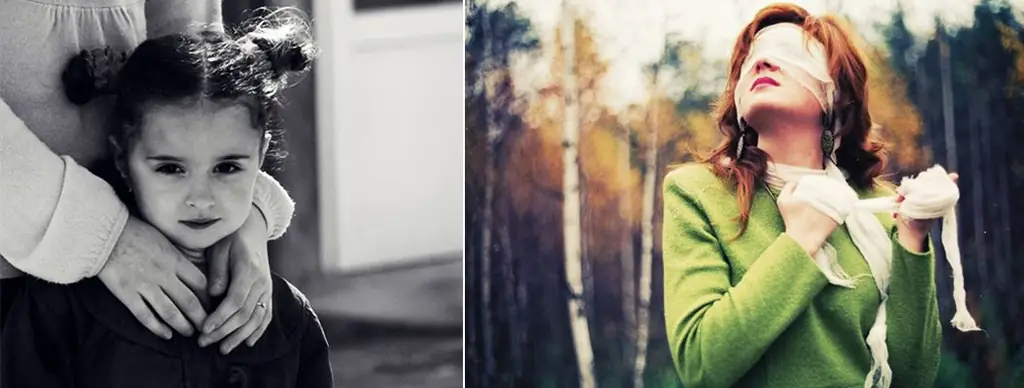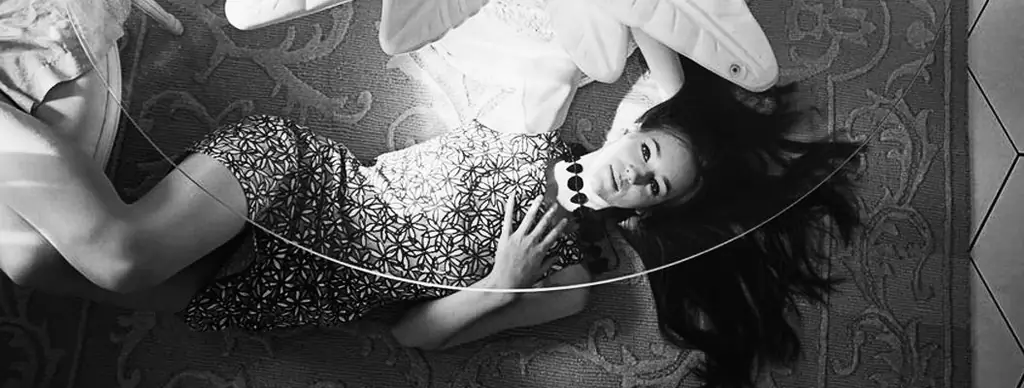- Author Adrian Jeff jeff@psychologosportal.com.
- Public 2023-12-17 05:06.
- Last modified 2025-01-24 14:09.

Why I don't want anything, or How to overcome apathy
And that, many live like that - work, home, work, home. Work is not favorite, but you need to live on something. You cannot find a good job - the age (education, gender, appearance, experience) is not the same. Family … well, it can be worse. We live normally …
What will you do this weekend? Lying in front of the TV, indifferently sorting through the pages of the Internet in search of something interesting? Or will you sleep all day? Friends are calling to relax together, but you come up with thousands of reasons not to go anywhere. Or maybe they are no longer called.
Well, actually you want to go somewhere, you make plans for next weekend … But again the body refuses to move. Fatigue once again covers all your plans with a heavy stove. Better to relax at home. I don’t want to do anything, and I don’t want to go anywhere …
A quiet pool without desires and worries
When does indifference to life begin? What loss takes joy with it? Death of a loved one, divorce or betrayal of a loved one, dismissal … Or the job is simply exhausting - the boss is a tyrant, colleagues … it is better to remain silent. Moreover, the child is a "blockhead", a husband / wife with claims.
Depression, chronic fatigue syndrome, burnout, procrastination, laziness. We call our states differently, not always understanding how one differs from the other. And quite often this is all - apathy. Indifference to what is happening. There are no more grievances, no hatred, no soul hurts. And I don't want anything.
And what, many live like this: work - home, work - home. Unloved work - but you have to live on something. You cannot find a good job - the age (education, gender, appearance, experience) is not the same. Family … well, it can be worse. We live normally.
Is it okay to live like that? Let's try to figure it out using the system-vector psychology of Yuri Burlan. She gives an exact answer where apathy comes from and what to do if you don't want to.
Man is born to want
Any living organism wants to get pleasure from life. Moreover, he will not move until he realizes that this movement will give at least a small piece of carrot. Accordingly, no one plans to suffer, avoiding trouble in every possible way. This is how all living things move through life - from the stick to the side of the carrot.
A person is assigned - to receive pleasure from life. For this, as the system-vector psychology of Yuri Burlan says, everyone from birth is endowed with certain properties of the psyche and corresponding desires, provided, among other things, by physiology. Groups of properties are called vectors. In fact, man is - the direction of his desires and how he manifests itself in the world by his action to realize them. Why don't we want anything, if wanting is the basis of our nature?
Developing the given talents, following their natural desires, a fully formed personality comes of age. And an adult is already realizing skills and abilities in society, enjoying his work. Plus - he enjoys the "feedback" in the form of money, status, admiration, gratitude. And the more fully he gives up his talent, the more his life is filled with happiness.
True, such development is possible when parents understand the characteristics of their child. Or at least they don't interfere. Unfortunately, many are guided by their own ideas about the "correctness" of desires. Not always - “I know better what my child wants” - is not always successful.

Why would you want if everything is useless?
We have already matured. They themselves are able to choose their own "gingerbread" and calculate the painfulness of the "sticks". Only again we get a click on the nose. Have you dreamed of living with your beloved happily ever after? And the other turned out to be more attractive to him! Planned to become a chief? The CEO's nephew has grown up. Life makes its own adjustments, taking loved ones, destroying plans. I wanted to, but did not give it. He gave all of himself, but "did not take."
Owners of different vectors react to disappointments in different ways - someone accepts what is happening with humility, someone enters the fight. Apathy occurs as one of the responses to long-term dissatisfaction - most often in the skin, anal, visual or sound vector. We will not analyze the features of each vector here, this can be done independently at the training System-vector psychology by Yuri Burlan. Apathy in all cases has one root - a long-term inability to satisfy desires.
By and large, apathy is a beneficial reaction in our psyche. One loss, second, third - nerves at the limit. The pain of unfulfilled hopes can be overwhelming. A protective reaction turns on. And now you do not feel the pain of loss - let go. And along with this, the desire itself leaves - it extinguishes as unattainable. You no longer strive for success. If you don't see the point, it still won't work. You no longer experience anything, you do not want to achieve anything. This is how apathy is formed, and it is not clear what to do if you do not want to do anything for an objective reason: in order not to suffer in vain again.
Alas, if you do not want anything, then the body adjusts, reducing activity, accelerating the aging process. After desires, life imperceptibly leaves. In old age, this happens naturally. Speed up the process is a big mistake.
One unlived life
And again you will have to return to childhood. The direction of desires is given from birth, the strength of desire depends on the innate temperament and is always comparable to the possibilities. I want - I can - I do.
Normally, the adult adapts to stress by turning a fall into an opportunity for growth. Alternatively: "I will cope with adversity in spite!". Numerous success coaches speak about this. Only they forget to add that they need a certain skill of adaptation, acquired in childhood. Or a systemic understanding of what is happening and awareness of the reasons for their own state.
Maybe with all your heart you want to be the best, to be respected, to be listened to. Or you dream of financial success. Or dreaming of eternal love. But as a child, your mother never praised you. You felt that adults were making fun of your ideas. Parents constantly pointed out that other children are better at something. For each vector, there is something that kills the child's confidence in the correctness of his intentions. Or maybe, on the contrary, you were too protected, not giving you a chance to learn how to overcome difficulties on your own, to enjoy your little victories. Realization of this partly answers the question - why you don't want anything in adulthood.
Only there is no point in blaming the parents for ignorance and parenting mistakes. In the same conditions, the owners of other vectors, on the contrary, could receive maximum development. But you also have the opportunity to regain the fullness of the sensations of life.

I want to learn to want
The main problem of getting out of the state of apathy is that desires are so suppressed and not felt that they are not even enough to want to want. Vicious circle. Focusing on your condition only makes the situation worse. Attempts to indulge oneself with a cake or a new thing bring only a fleeting shadow of joy, camouflaging real needs. Even sex leaves behind an aftertaste of dissatisfaction. And again the familiar rolls over: I don't want to do anything, and in general - I don't want anything!..
System-vector psychology offers an effective way out of apathy. It's much easier than it sounds. Introducing us to ourselves, showing us our potential, which we never knew about, clearly indicating our desires and what can fill us with real deep joy, SVP returns us a sense of life. Desires wake up in us anew, and we are no longer afraid that they are unrealizable. We know for sure: every desire is provided with an opportunity, properties within us to provide it. This is how a person is made. Read the numerous testimonials of people who have undergone the training - many of them, describing their conditions, say that life is divided into BEFORE and AFTER.
“My inner dialogue, most likely, grew into a friendship with myself. It became easier for my relatives to communicate with me. My husband supports me every day. There were days when I didn’t think about the panic attack at all, then those days turned into weeks. It is such a feeling of fulfillment and realization that you want to live. I all understand that in my case everything cannot be cured at once, I know that I will have to consolidate all the material, but I have a meaning in life. I felt on myself that I can live without drugs, I accept all my changes. I generally change inside and out. My family has a wonderful relationship. I took up myself. Indeed, as many people say, life began to be divided into before and after, and this is just the beginning … Evgeniya B., Moscow Read the full text of the result
Instead of the dull “I don’t want anything” there is “I want, which means I can”. And a person really embodies the desired into reality. You can start living a full life at any age. You can learn more about the methodology at the free online training System-Vector Psychology by Yuri Burlan. Registration is here.






